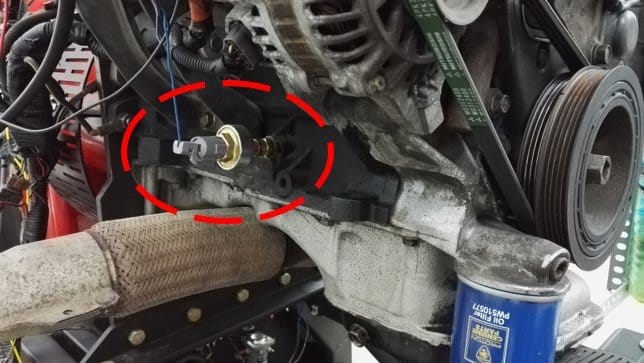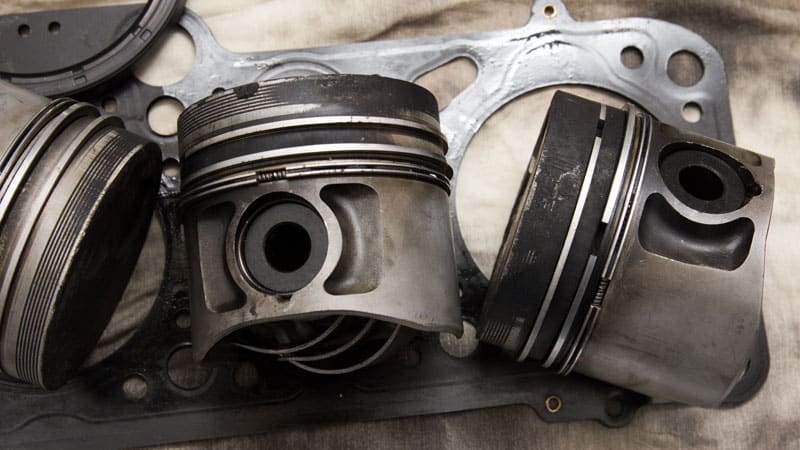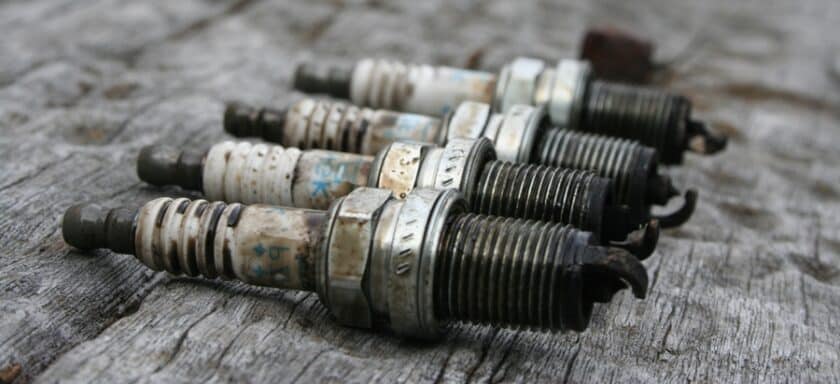When you’re driving and you hear a knocking noise coming from your engine, it can be both alarming and frustrating. Not only does it sound like something is wrong, but it can also cause damage to your car over time. In this article, we will explore the six most common causes of engine knock so that you can be better informed and hopefully fix the issue yourself!
Carbon buildup, incorrect combustion timing, and faulty knock sensors are a few of the reasons your car engine might start making strange noises. If you hear knocking or banging coming from under the hood, it’s best to take care of the problem as soon as possible, as ignoring it could damage various parts inside your engine.
What Is An Engine Knock?
An engine knock is usually a knocking or pinging noise you’ll hear when the engine runs. The noise is caused by the engine’s pistons moving up and down in their cylinders. When they move up, they create pressure inside the cylinder that ignites the fuel-air mixture. The mixture then expands and pushes down on the piston as it moves back down again.
This process happens very quickly, but if anything affects how the pistons move or the combustion timing, it can cause a knocking noise. Engine knock can also be caused by excessive burn-up of carbon deposits on the pistons or valves, incorrect fuel octane, and faulty knock sensors.
Engine Knocking Causes
Let’s take a more in-depth look at each of these causes to understand better what might be happening with your engine.
1. Carbon Buildup
One of the most common causes of engine knock is carbon buildup on the pistons or valves. Over time, small amounts of carbon can build up inside the engine, and when this happens, it can cause the engine to run less efficiently. The carbon deposits can also affect how the pistons move, leading to engine knocking.
Some argue that carbon buildup is the engine’s natural byproduct, akin to the patina on well-worn leather. They claim it’s a sign of an engine that has lived a full life, and the knocks are its way of narrating tales from the road.
Conversely, pragmatists see carbon as an invader, disrupting the engine’s pristine mechanics. They equate it to the unwelcome houseguest overstaying their welcome, causing trouble that could be avoided with regular maintenance.
2. Incorrect Combustion Timing
Another common cause of engine knock is incorrect combustion timing. If the engine’s timing is off, it can cause the pistons to move at the wrong time, leading to an engine knock.
For purists, the timing of combustion is akin to a conductor’s baton guiding an orchestra; it must be exact, and any deviation results in disharmony. They hear engine knocking as a clear sign of mechanical anarchy.
Yet, some laymen believe that slight deviations in timing aren’t catastrophic. To them, a little knocking is just the engine’s quirk, like a person with an offbeat walk – not ideal, but hardly a disaster.
3. Faulty Knock Sensors

Faulty knock sensors are another common cause of engine knock. The knock sensor is an important part of the engine that helps control the combustion process’s timing. If the knock sensor is not working correctly, it can cause the engine to run less efficiently and lead to an engine knock.
Technophiles hail knock sensors as the guardians of engine efficiency, the smart tech that keeps the metallic beast in check. They view these sensors as essential in the modern, computer-driven world of precision engineering.
Traditionalists, however, question their necessity, reminiscing about times when drivers used instinct rather than relying on sensors. They argue that a well-tuned ear and an experienced hand on the throttle are all that’s needed.
4. Incorrect Fuel Octane Rating
Another common cause of engine knock is incorrect fuel octane. Using lower-octane gas in your car can cause engine knock because it doesn’t burn as efficiently, damaging the engine over time and leading to other problems.
For some, high-octane fuel is non-negotiable, the elixir that keeps engines purring smoothly. They equate low octane with fast food – cheap and convenient but ultimately harmful.
Yet, economists point to the cost-benefit analysis, where the price of high-octane fuel doesn’t always justify its performance. They advocate for a balanced approach, tailored to the engine’s design and the driver’s needs.
If you’re using lower-octane gas in your car and you hear the engine knock, switching to a higher-octane gas is best. Hopefully, This will fix the issue and prevent further damage to your engine.
Low-octane gas is one of the most common causes of engine knock, so if you’re hearing the knocking noise, be sure to check your fuel octane and switch to a higher grade if necessary.
5. Worn Pistons

Worn pistons can also cause engine knock. Over time, the pistons in your engine can start to wear down and become less efficient, and this can lead to engine knock because the pistons are not moving as smoothly as they should be.
There’s a camp that accepts piston wear as an inevitable decline, a fact of life for any hard-working engine. They see engine knocks as the first signs of wear and tear, a call to start planning for inevitable repairs or replacements.
6. Damaged Valves
There’s a camp that accepts piston wear as an inevitable decline, a fact of life for any hard-working engine. They see engine knocks as the first signs of wear and tear, a call to start planning for inevitable repairs or replacements.
Yet, prevention advocates argue that piston wear can be significantly delayed with proper care. They see engine knocking not as a death knell but as a warning to take immediate, preventative action.
Damaged valves can also cause engine knock. When the valves are damaged, they can become bent or stuck, which can cause the engine to run less efficiently. This ultimately leads to an engine knock.
What About an Air Fuel Mixture?
An air-fuel mixture that is too lean can also cause an engine knock. If the mixture is too lean, it means there is not enough fuel in the air mixture. This can lead to an engine knock because the engine is not getting enough fuel to run properly.
Can Spark Plugs Be A Problem?

A spark plug is a device that helps deliver electrical current from an ignition system to the engine combustion chamber. It is located at the top of the engine cylinder and has a threaded portion that screws into the engine. The spark plug has a central electrode that protrudes into the combustion chamber. This is where the spark occurs.
The gap between the central and ground electrodes determines how much voltage is required to produce a spark. If the gap is too wide, it will take more voltage to jump it; if it’s too narrow, there may not be enough voltage to create a spark.
The spark plugs’ purpose is to generate a spark in the combustion chamber so that the fuel-air mixture will ignite for the engine’s power stroke. If they are faulty or not correctly spaced, it may cause engine knocking.
Different heat tolerances among various spark plugs may result in premature detonation knock. Lastly, if the gap is too narrow, then the sparks will be weak and won’t be able to ignite the mixture. A too-wide gap prevents any sparking from happening at all
Spark plugs that are old or damaged can also cause engine knock. When the spark plugs are not working properly, it can cause the engine to run less efficiently. This ultimately leads to an engine knock.
If you hear an engine knock, it is important to have it checked out by a mechanic as soon as possible. Engine knock can be caused by various things, some of which are more serious than others. Diagnosing and repairing the problem quickly can help avoid costly engine damage down the road.
Preventing Engine Knocking
The best way to prevent engine knock is to keep up with regular maintenance on your car. This includes things like changing the oil regularly, keeping an eye on the air-fuel mixture, and replacing spark plugs as needed. Doing these things can help keep your engine running smoothly and avoid knocking noises.
What Is A Detonation Knock?
A detonation knock is a noise you’ll hear from the engine. This type of engine knock is caused by the air/fuel mixture detonating prematurely in the engine cylinders. When this happens, it can cause the engine to run less efficiently and can cause damage to the engine over time.
Detonation knock can be prevented by keeping up with regular maintenance on your car and using the proper grade of gasoline for your car.
Such a sound can be heard especially often after cleaning the ignition system. For it to pass, you need to avoid pressing the gas pedal too sharply for a certain time and ensure that the car receives only high-quality gasoline.
Can You Drive A Car With A Knocking Sound In Engine?
If you hear an engine knocking, it’s important to have it checked out by a mechanic as soon as possible. Knocking engine can be caused by various things, some of which are more serious than others. Diagnosing and repairing the problem quickly can help avoid costly engine damage down the road.
Driving with a knocking engine is not advised. Detonation, or knocking sound, is very dangerous for your engine’s internals and can cost you over $3000 in repairs if you’re not careful.
In the meantime, there are a few things you can do to help prevent the knocking engine from getting worse. First, avoid using lower grades of gasoline. Second, don’t drive too aggressively. These steps will help keep the knocking sound from causing further damage to your car.
What Causes Low Compression In An Engine?
A variety of things can cause low compression in an engine. First, it could be due to a problem with the engine’s Pistons or Rings. These parts can wear out over time and cause the engine to lose compression.
Additionally, low compression can be caused by a leaking head gasket or a cracked engine block. Low engine compression can lead to engine knocking and other problems, so fixing it as soon as possible is best.
Low Oil Pressure
One potential cause of engine knock is low oil pressure. Oil lubricates and helps to dissipate heat from moving parts such as the camshaft, cam lobes, lifters, valve stems, and rocker arms. The lash, or the distance between parts, should be saturated with oil to lubricate and fill the gaps. The components can clatter or knock if the gaps get too big due to wear or low oil pressure.
The knocking noises are most likely to occur on cold starts before the oil has had a chance to fully circulate and lubricate all of the moving parts in the engine. Low oil pressure can also cause problems in modern engines that use hydraulic lifters, which help minimize noise (or “knocking”). If the engine gets too hot, it can cause low-quality or low-grade oils to break down and interfere with the development of proper oil pressure.
Can Low Oil Cause Engine Knock?
Yes, a knocking sound can be caused by low oil pressure. When the engine oil pressure is low, it can cause the engine parts to rub together, which creates a knocking noise. Additionally, low oil pressure can cause the engine to run less efficiently and can cause damage to the engine over time.
It’s important to keep an eye on your engine’s oil level and get regular oil changes to prevent engine knocking from happening.
Valve Lifter Failure And Knocking Sounds
Faulty valve lifters produce a tapping sound that intensifies as the engine warms up. The purpose of valve lifters (also called hydraulic tappets or hydraulic rod adjusters) is to ensure that all valves in the engine have zero clearance. You can find them at the end of each rocker arm or pushrod, opposite the valve stem they assist.
Fuel, Pistons, and Valves: A Trio of Troublemakers
Octane’s Overture
Fuel is the lifeblood of an engine. Low-octane fuel can cause premature detonation within the engine’s chambers, leading to a knock that echoes the tale of poor fuel choices.
The Wearing of the Pistons
With time, worn pistons become less effective translators of energy. They start to falter in their dance, causing a knocking that is a replacement cry.
Valvular Integrity
Lastly, damaged valves are like broken instruments in an orchestra; they disrupt the flow and create a knock that speaks of mechanical dissonance.
Frequently Asked Questions
Q: What can I do to prevent engine knocking?
A: Regular maintenance is key. Ensure timely oil changes, check the air-fuel mix, and replace spark plugs to maintain engine health.
Q: Can driving with a knocking engine cause damage?
A: It’s akin to forcing a limping athlete to run; it exacerbates the problem and can lead to costlier repairs.
Q: How important is the correct fuel octane in preventing engine knock?
A: It’s crucial. Think of it as giving your engine the correct diet to perform at its peak without hiccups.
Q: Are spark plugs often the culprit behind engine knocking?
A: While not the most common cause, faulty or old spark plugs can contribute to engine knock and should not be overlooked.